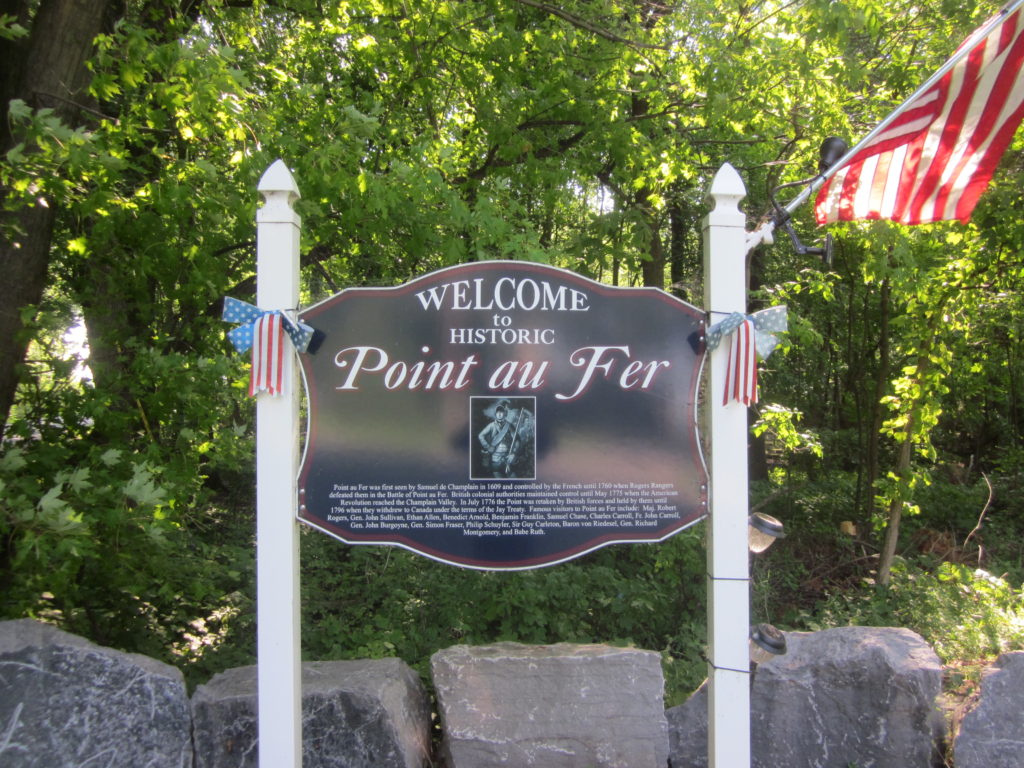Some six years after the end of the American War of Independence, Clement Gosselin, a veteran, sought the support of President George Washington. Appeals to the highest executive office were not usual, but Gosselin’s letter, written in French and alluding to a “common enemy,” merits special attention. The veteran, born on l’Ile d’Orléans near Quebec City, was part of a small group of French Canadians who served in the ranks of the Continental Army through much of the war. Many eventually settled in the “Canadian and Nova Scotia Refugee Tract” in upstate New York and especially along the western shore of Lake Champlain, in Clinton County. As a distinct community, most having freely chosen to join the revolutionary endeavor, we might consider these settlers to be the first Franco-Americans, alongside the French Canadians of the Midwest who embraced the same ideals. The letter tells of their trials:
Lake Champlain, Little Chazy River
September 18, 1789
[To President George Washington]
I offer to Your Excellency the poor and sad situation of a person who languishes with his family and who, on this occasion, knows not how to pay his respects. He himself has had to turn to the present means to compensate for that which he would do himself, were it not for the sickness that troubles him every year.
Your Excellency must know that the State of New York received us [expatriates of the Old Province of Quebec] as citizens in this province [New York], that it charitably gave us some land for us to settle, and that the fees for surveys and letters patent signed by the governor of this province would be paid for us Canadian refugees.
I dare to represent to Your Excellency that a portion of the said lands have been measured and paid to the surveyors by ourselves. But some are occupied by the enemy, such that we cannot benefit from these lands, for it is understood that we are prevented by the common enemy of Canada [i.e. the British].
We were then warned that on the first of November, we would have to go to Governor Clinton to get our letters patent, without which, if we have no means to pay for them, our lands would be taken away.
I dare say, having seen better days, that all of this is very difficult, without means, and after losing my own property in Canada for the common cause of the States, alas, I do not ask for anything immense, but to be left where I am, safely, and that I at least be allowed to live my final days in peace—what remains of a miserable life that I have dragged along since I was injured at Yorktown, Virginia.
I pray that Your Excellency, knowing that you have for the afflicted a heart full of charity, will speak of my situation to Governor Clinton. Your Excellency knows all too well the sufferings that I bore during the war to provide intelligence from Canada with the greatest precision and fidelity; I ask but a little consideration for my present situation.
For me, who is in perpetually admiration of your goodness, I know well to keep a respectful silence, unless you allow me to break it to thrice express my respects as Your Excellency’s most humble and most obedient servant.
Clement Gosselin
The harassment that the Canadian refugees endured from the British on Lake Champlain, like their difficult economic circumstances, suggests that the war did not truly end in 1783. Only with Jay’s Treaty, ratified in 1795 and implemented in 1796, would the British halt their operations south of the forty-fifth parallel. Settlement and commerce then expanded. But for a full decade, the life of Canadian veterans in New York was indeed a “poor and sad” affair. Read more at the Adirondack Almanack.

Further Reading
Pierre Dufour and Gérard Goyer’s profile of Gosselin at the Dictionary of Canadian Biography.
A brief overview of the history of these “first Franco-Americans” at the blog of the Immigration and Ethnic History Society.
The original French version of Gosselin’s letter, with President Washington’s response in the note.
Addendum, April 2019: My work on the “first Franco-Americans” now appears in the Journal of Early American History. Click here for access.
Leave a Reply